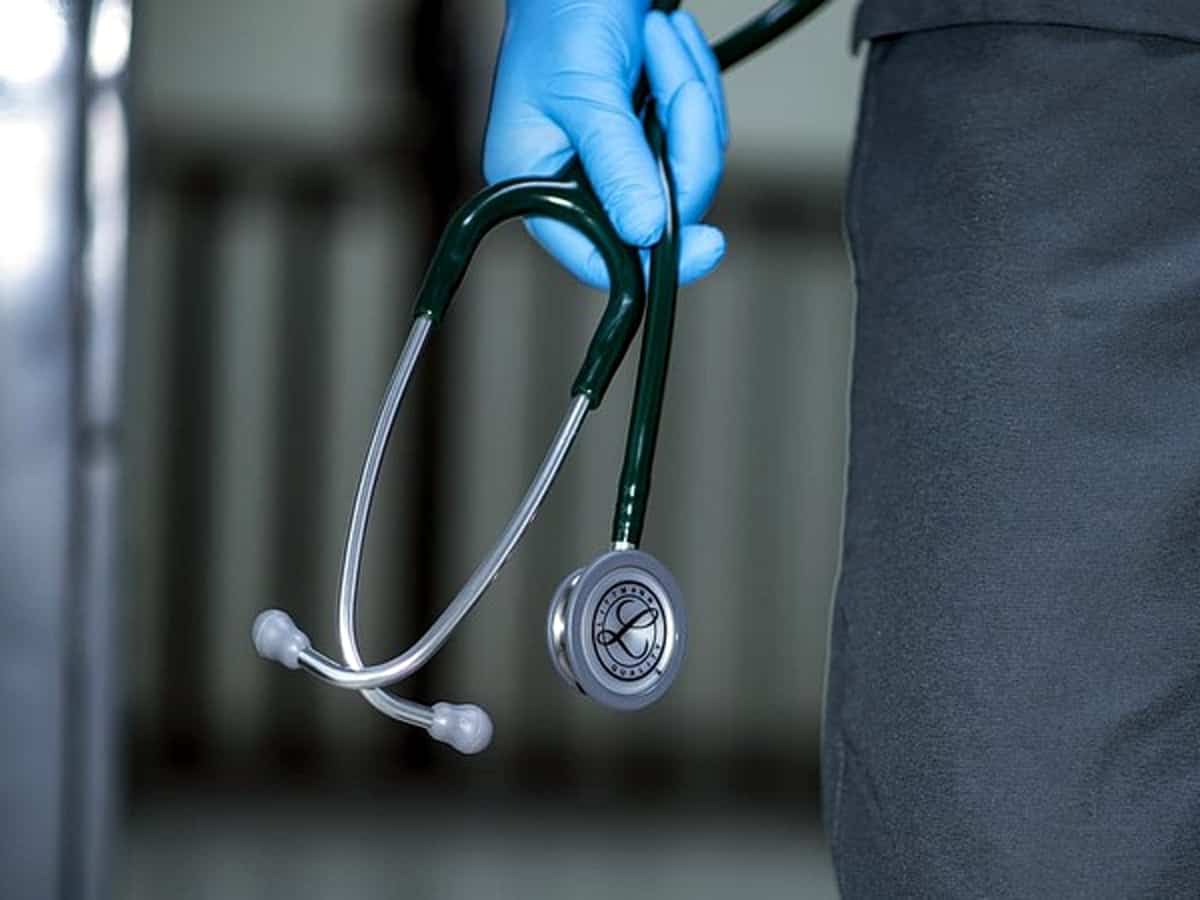
London: An Indian American student studying in London has decided to choose a career in medicine after the UK’s National Health Service (NHS) medics saved his life after his heart stopped six times.
Atul Rao, from Seattle and a student from Baylor University in Texas, developed a blood clot in his lungs which stopped the blood flow through his heart, a condition called pulmonary embolism, and caused him to go into cardiac arrest.
After he was rushed to London’s Imperial College Healthcare NHS Trust Hammersmith Hospital’s heart attack centre, scans confirmed that blood clots in the lungs were blocking the flow of blood from the heart. Recently, Rao returned to the hospital in London with his parents to express his gratitude.
“Before this happened, I was starting to wonder if I was doing the right thing doing medicine and whether I should be going into business instead,” Rao told the NHS medics during the visit last month.
“But the minute I woke up I knew. I want to use my time in a productive way. I want to use my second chance at life by helping others,” he said.
Rao is in his final year of a pre-med degree which would allow him to go on to a further degree to practice medicine. On July 27, he was discovered collapsed by fellow students who raised the alarm before an Imperial College London security guard began to give him chest compressions (CPR) in the minutes ahead of London Ambulance Service crews arrived.
“The last time I saw Atul I didn’t think he was going to survive. To meet him again and speak with his parents after giving them such terrible news was a very special moment in my 18 years in this job,” said Nick Sillett, the ambulance service’s paramedic.
Staff at Hammersmith Hospital worked tirelessly through the night to keep Atul alive and he was still critically unwell when he was transported to St. Thomas’ Hospital the following day in case he needed access to extracorporeal membrane oxygenation (ECMO) a life support system which can fully replace the work of the heart and lungs so that patients have time to heal.
The clot-busting drugs had begun to work and with the help of other life support machines, he was able to recover without the need for ECMO.
“This was a real team effort and so many people helped ensure Atul was able to be here. It’s a privilege to be a part of that and hear that you have helped make such a positive impact,” said Dr Louit Thakuria, critical care consultant at Imperial College Healthcare NHS Trust’s Hammersmith Hospital.
Atul’s father Ajay, who works at a software company in the US, recalled his agonising flight over to London after knowing decisions were being made which could affect whether his son would live.
“I’m not exaggerating, Hammersmith and St. Thomas’ hospitals have become places of worship for us. We will be coming here whenever we come to London. It was the heroic efforts of London Ambulance Service, the amazing medical teams of Hammersmith, St Thomas’ and Royal Brompton that saved him from this life-threatening series of events,” he said.
Mother Srividhya, a maths professor in Seattle, added: “A really bad thing happened in a really good place. Everyone who worked around Atul wanted him to be well. It’s clear they love and care about what they do.
“I feel blessed to be here and I’m so thankful and grateful to you for giving my son back to me. I have gained perspective about life and he gets to see it at such a young age. His life has changed, and it’s had a profound impact.”



